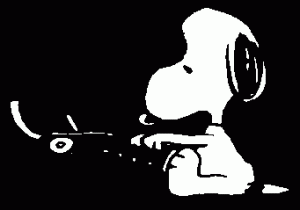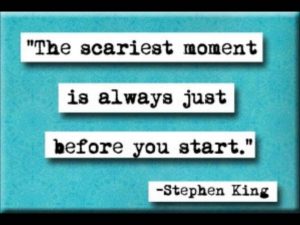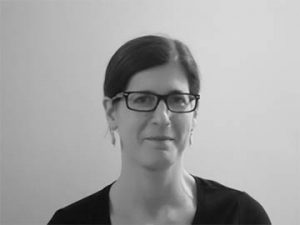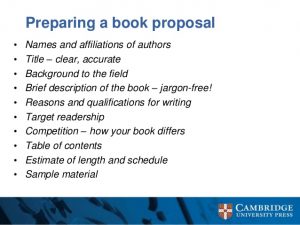When the fellows in my 2016 FFPP writing group said goodbye at the end of the spring semester, it turns out they were only saying goodbye to me! Months later, when I had occasion to catch up with one of the seven members of the group, I learned that in fact they had never stopped meeting. Now, nearly a year after their official time together ended (and with their FFPP release time long gone), this group of CUNY colleagues continues to read and workshop each other’s writing.
To my mind, this group—Ria Banerjee (Guttman Community College), Megan Behrent (NYC College of Technology), Alison Better (Kingsborough Community College), Allison Curseen (Baruch College), Sarah Hoiland (Hostos Community College), Julia Rossi (John Jay College), and Alex Welcome (LaGuardia Community College)—offers a model of collegiality, professionalism, and engaged scholarship that can be of wonderful use to current and future fellows. What follows are the group members’ responses to my recent query:
“What is the story of this writing group-that-never-stopped? How did you keep going? What is the secret to your success (strategies, key moments, modes of support)?”
I hope you will find this conversation both energizing and enlightening as you consider ways to extend the good work of your FFPP writing group into the future. I share the comments below with the fellows’ permission and with my deepest thanks to them.
Matt Brim, Associate Professor of Queer Studies, Department of English, Director, Program in Women’s, Gender, and Sexuality Studies, College of Staten Island, CUNY
____________________________
“What is the story of this writing group-that-never-stopped? How did you keep going? What is the secret to your success (strategies, key moments, modes of support)?”
Dear Matt and colleagues,
I think what was key in our group is how cool every project was/is. We became super engaged in each other’s academic paths because most of the time our FFPP meeting did not sound like extra work but like having some fun. Our topics were somehow irreconcilable… weren’t they? And that is how we could come up with inexpert views that enriched each other’s sometimes tired ways of understanding certain topics. Fresh looks and genuine interest fueled our meetings and kept us connecting beyond what was mandatory. To what our original purpose was: we should mention we scheduled some meetings to work with specific grant applications (besides the applications we discussed during our regular meetings, we had one extra productive session right before PSC-CUNY apps were due) and a collaborative project Ria created (and included me!). I hope this helps!
Best,
MJulia
Maria Julia Rossi, Assistant Professor, Department of Modern Languages and Literatures, Gender Studies Affiliated Faculty, John Jay College, CUNY
____________________________
Dear Matt,
It’s lovely to hear from you! When you ask what kept us going over this last year, I think it’s a combination of really liking the people in this group, respecting their scholarly work, and setting good plans. But to my mind, there are riders to all three aspects. For one, I’ve been in working groups with friends before and it’s been very hard to work because I/we were too easily distracted by personal talk; in our group, we know each other well but there’s a slight reserve (not sure what else to call it) that helps us focus. These are my first professional friendships, which I’m finding is a different mode of knowing and enjoying people.
On a related note, you’re still a big part of our group dynamics. You gave us a great model: letting us warm up for a quarter hour or so, then having a review with the “cone of silence”. We use that strategy consistently in our meetings. We’ve discarded or modified other parts of your practice–for instance, sometimes we still generate review letters but I find in-line comments plenty. However, the in-person routine we absorbed from you has remained central to our practice.
Second, I like my colleagues work. We have our own styles of writing and also professional aims that sometimes overlap, sometimes not. Despite individual differences, it has really helped me to remain committed to the group because I’m continually impressed by the drive and generosity of the others. I want to be as good as them, so I keep writing and polishing even when I want to give up on the whole exhausting project. And I want to give good comments on their work because they have always given me useful advice. I imagine this is a cyclical generative thing within the group: we create the ambition and then pursue it, and when things are rough, I know there are 6 others trying and failing and succeeding around me.
Lastly, I think it’s crucial that we plan for a semester’s worth of meetings. Sarah is especially great at making us set those plans, even though May or June feel unimaginable when we are sitting around a table in December or January. Sticking to our meeting times and sending writing out per schedule needs a lot of mental preparation for me! I need to have something inked into my planner weeks in advance so that I don’t flake at the last minute.
These are, for me, the aspects that are most important in our group dynamics. I hope some of this helps with your post! I’m keen to know how others see it, too–how interesting to compare our views of the same things.
With all my best,
Ria
Ria Banerjee, Assistant Professor of English, Program Coordinator, Liberal Arts and Sciences Guttman Community College, CUNY
____________________________
Hi Matt,
For me, the group was able to keep going for a number of reasons. I identified 4 qualities (which for the campy fun of it I call F.F.P.P.) that I think have really helped our group continue successfully.
1) FOUNDATION: the model established during FFPP is a really good foundation, and yes we have revised it many times as we continue to meet, but the solid foundation is core especially since we are coming from different disciplines, institutions, schedules etc.
2) FLEXIBILITY: we’re flexible about what we workshop and how. So we have looked at chapter and article drafts, fellowship applications, proposals, and we look at things in super super rough iterations and things that are really polished. And while I think we are always working from the kind of core foundation established during FFPP, we do modify our workshop style depending on type of writing: i.e. sometimes we workshop two folks and sometimes just one. When we workshopped our PSC-CUNY applications, we did not read them ahead of time, but read them in person. We have also been amenable (even during the FFPP semester) to what I call satellite meetings. So we have a core plan, but we have repeatedly been open to someone saying hey does anyone have an extra moment to look at a conference abstract or paper for one random hour. There’s no expectation that everyone has to participate in this extra meeting or that it has to be in person etc. In this way I think our writing group is more like a collective. We have a strong core, but we can adapt to accommodate many of our various needs.
3) PEOPLE: One of the reasons our group works is that we just got a really good group of people, and I think we all know that and are thankful for it. Not only does the group allow us support with our research and writing, we also really enjoy each other’s company and over time have developed a lot of trust that enables us to work through a variety of issues we face as junior faculty even beyond writing concerns. Even when we vehemently disagree, I think our group is genuinely supportive and receptive to what each person brings. It’s not just a matter of collegiality or tolerance; I am under the impression that for the most part everyone in our group is attracted to/entertained by/ intrigued by/ or just open to not only the points where we are similar or compatible but also to the points where we are different and maybe even incompatible. Everyone in our group is super dynamic, though in distinctively different ways. I think the effect is that we are all constantly energizing each other. Okay I hope this helps.
4) PRESENCE: So even in the core meetings, no one has perfect attendance, but I think people police themselves and try to be balanced. Like no one seems to expect more of the group than what they put in, and most of all when we are there, everyone is super engaged and present. Everyone’s trying to give something.
Best,
Allison
Allison S. Curseen, Assistant Professor, English Department, Baruch College, CUNY
____________________________
Hi all,
I’ll emphasize a few points that other people made that resonated with me.
1) The foundation, as Allison calls it. I think from the very beginning there was a tone set that was both serious and professional about the scholarship, but also incredibly open and warm in encouraging people to raise other concerns that arose as junior faculty members at CUNY. The format provided for reader responses and the structure of each meeting with the ‘cone of silence’ an integral part, really helped to shape the discussion and provided a framework that we continue to use, even if we no longer use the full written response model. The combination of consistency in terms of how we structured conversations and flexibility in what people could submit (as well as allowing space for digressions) provided a model for how to have constructive sessions.
I think an important aspect of the success of this model is creating a space for discussions that don’t happen in departments or on any of our campuses. As someone who came from a non-traditional academic background, the world of scholarship and publishing can feel very daunting and mystifying. Being in a room with other people trying to figure out some of the same things, and negotiating other challenges, creates a space that gives people more confidence, I think.
2) The People & Interdisciplinarity. From the very first meeting, what immediately excited me were the fascinating topics people brought to the table — and the interesting approaches people took to them. In this regard, I think it was actually helpful to have an interdisciplinary group. It meant different people brought different perspectives to responses, but it also meant none of us really share specialties even if there’s a lot of overlap. Each of our projects are very distinct, as is our way of thinking, approach to writing, etc. I think this enriches the group . It makes it easier to be challenged by the group in the sense that the incredible work I was reading made me want to rise to the occasion and produce better writing, research and feedback myself. At the same time, the work is different enough that I never felt like I was somehow comparing my own work to other people’s in a way that might have felt unproductive or stifling–and, I just learned so much about Moms Mabley, Women’s Outlaw Motorcycle Clubs, Topsy, Architecture & Modernism, Sex Stores, servants in Garro’s work, etc. I agree with other people that this has meant that I feel very invested in other people’s projects and want to see them succeed. These are books I want on my bookshelves.
On a personal note, I have never been a room with people who have so challenged me as a writer, researcher and thinker without making me feel bad. The criticism I have received, I take to heart–it has made me more aware of tendencies in my own work (and, now when I write, I frequently hear distinct voices of people in the group in my head!). But it has also made me somewhat clearer about what kind of work I want to do.
cheers,
Megan
Megan Behrent, Assistant Professor of English, NYC College of Technology/CUNY
____________________________
Hi all,
Thinking about Matt’s request and reading everyone else’s thoughts leads me to this:
Why did we work? First, we were guided and held together from the beginning by Matt, our mentor. His leadership of our group has really shaped our ways of confronting our writing challenges and our professional selves. Even as we moved on to meet after FFPP, we have kept much of the structure set out for us by Matt.
From the beginning, we were all invested in each other, in our new-ish identities as junior faculty, in our ideas of shaping and reshaping our research projects, in strengthening our writing projects, our teaching, and our professional selves. This group has always felt tremendously supportive, both personally and professionally. In addition to supporting our writing projects, we have also worked on and discussed grants, promotion, teaching, and conferences.
Our different, but intersecting projects also have drawn us closer. I think this group’s interdisciplinarity has been a major strength. We all have such different things to contribute to each other and to learn from each other and we have always entered these conversations with openness. Lastly, and perhaps most importantly, as a group we have always approached our work together with kindness. This group has always been incredibly generous with time and supportive of all of our endeavors. Kindness isn’t always common in academia. It’s been a gift to have the space and time to spend with this group to help push our work forward, become more thoughtful writers and scholars, and to have a supportive community to return to.
Looking forward to hopefully seeing you all soon!
Alison
Alison Better, Associate Professor and Area Coordinator, Sociology, Co-Director, Women’s and Gender Studies Department of Behavioral Sciences and Human Services, CUNY/Kingsborough Community College
____________________________
I think this group works because a of a couple of things.
First, I think the disciplinary mix is good.
You have what is basically a group made up of Sociology and English people. And, there’s a decent amount of variation within and between those groups. No one does the exact same thing as anyone else, but there’s a lot of shared knowledge. People will know what you are talking about and be able to give you a reflective take on your topic.
Second, I think we are all at the stage of trying to figure out how to tell the stories that we want to tell. Everyone in this group has a story, and is facing some troubles in telling that story. Each story is interesting, and each story is entangled with other great stories. This translates to each writer being invested in developing their own work and each group member being intrigued by elements of the stories that they hear from others. People have often said that the advice that they give is advice that they need to take themselves. I think this thing—the nature of storytelling—is something that we often talk about, or address, but don’t name. It comes through most clearly in what we ask people to add their writings and the things that we suggest people take out of their writings and save for another time.
Third, no one is a jerk. There’s no showboating or big-timing.
Fourth, none of us have written a book yet. We all have that as a shared project. This is a larger shared goal, the weight of it hanging over everyone’s head. There’s a certain combination of anxiety that is being productively channeled.
Also, and this is strongly tied to my fourth point, we are all trying to become comfortable with our works moving the margins of our disciplines. I don’t think that anyone is writing something that is traditional in their discipline. Everyone is trying to make expansions in content, method, topic, etc.
Lastly, I think that Matt did a really good job of letting the group be what it could be. I always felt that he wanted us to do certain things, but I never felt that he wanted us to be certain things.
Alex Welcome, Assistant Professor of Sociology, LaGuardia Community College, CUNY
____________________________
Dear All,
First, I really enjoyed reading everyone’s comments on our group and agree wholeheartedly, especially with the foundation and structure provided by FFPP with Matt at the helm, the people and the diversity of research topics and disciplinary, educational, and personal backgrounds, and the professionalism (as Matt called it and as Megan detailed in her response).
So, what do I have to add for the Commons?
Our FFPP group has challenged me as a writer, as a researcher, and as a reviewer. I have learned so much over the past 15 months about what it takes to polish writing for publication and have become much more confident through the process. There is no hierarchy between the 2-year faculty and the 4-year faculty and there is none of the competitiveness that is so common in academia. We see each other as equals and there is genuine support for the success of every member of the group. We support each other and at times propel each other to submit work that is past-ready for publication, apply for grants and fellowships that are very competitive, and to go for the book contract. We use part of our time for what Matt deemed “professionalism,” which has been exceedingly helpful as we progress toward tenure and promotion and for many of us, this is the only place we receive this kind of support and feedback related to our professional growth. Although our relationship is collegial, we are also friends and share life’s joys and sorrows.
We know each other so well that many of us have commented that we “hear” the unique voices of our FFPP colleagues as we write and comment on each others’ work. One of the most fulfilling aspects of the group has been to read my colleague’s revised articles, chapters, and fellowship applications, which is indicative of our mentor’s lasting influence. When Matt suggested submitting the same article or chapter twice to FFPP, I initially thought it would be a waste of the group’s valuable feedback; however, submitting one chapter and then resubmitting the revised version was the most productive use of my time as well as the group’s time. Many of us continued to submit and resubmit and several of us have commented that we have never felt more “heard” than when we read a revised chapter or article and see that our feedback was integrated into the revisions. The end result is a finely tuned piece of writing ready for peer review. I am giddy with anticipation to start reading the published versions of our articles and attend book launches in the not-too-distant-future.
As far as a publication update, I am planning to submit an article that began as a conference paper (International Journal of Motorcycle Studies Conference in London in July ’16), which was spurred by Ria’s comment to avoid using secondary sources (hence, I found myself in the Hollister Historical Society archives last April) by the end of this month. Our group has read several versions of it but I have to finally submit it and see what the reviewers say. Hopefully, I will have a citation soon:-) I am still in communications with the senior editor at UC Press and promised her a manuscript by the end of August (!!!), which means I have A TON of writing to do this spring and summer. The group helped me with the Intro. Ch. 1, and Ch. 2 over the past year.
The “big” news is that I am a PI on two collaborative national grants: an NSF grant ($300,000) and an AAC&U grant ($15,000).
Thanks again for helping us create the FFPP-group-that-won’t-stop!
Best,
Sarah
Sarah L. Hoiland, Assistant Professor of Sociology, Hostos Community College






